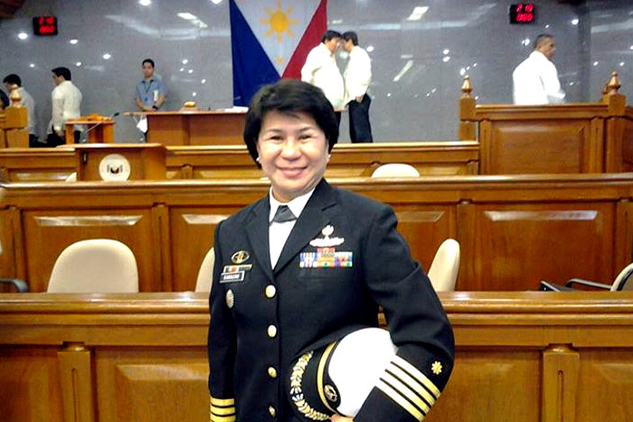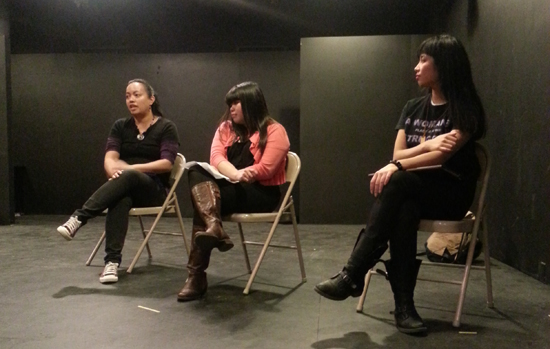“Woman must not accept; she must challenge. She must not be awed by that which has been built up around her; she must reverence that woman in her which struggles for expression.” - Margaret Sanger
On October 28, 2013, the Philippines made headlines as reports of their seventeenth peace-keeping mission to Haiti decorated both written and internet news publications. The Pilipino contingency is a part of a larger pacifist effort called the Multinational Interim Force. Conceptualized by United Nations in 2004, it was the reaction to the bloody confrontation that occurred between the Haitian government and insurgents that same year. They continue today as a means to maintain peace in Haiti, a country torn by violent anti-government revolts.
As a participant in this initiative, the Armed Forces of the Philippines provides perimeter surveillance, administrative and logistics service to UN diplomats. They ensure the safety of these figureheads as they move forward in their attempts to stabilize Haiti’s still transitional government and prevent any acts of violence that would only increase the amount of blood already spilled.
This ongoing campaign is praiseworthy without help, however, that is not the reason why it was plastered on newspapers and websites in bold print. The reason is Luzviminda Camacho. Camacho is this year's commander of the Philippines' peacekeepers. She is also a woman, the first woman the Philippines has ever sent on such a mission. This is an enormous stride for both Camacho and Pilipino women, and it is not the first she has made. In fact, she is quite familiar with the notoriety that surrounds a 'first woman leader'. She was the first female to command ships in the Pilipino Navy (four naval vessels over a period of three years). Assigned to traditionally male-occupied positions, Camacho is both carving out a larger space for women in the Pilipino military and proving that the intellectual skills of strategy and leadership do not elude women as much of society may think.
Gender Equality in the Philippines
Heavily influenced by Spanish colonialism, the Philippines is a society that, in its early years, centered itself a patriarchal ideal. Men were breadwinners and women homemakers. However, with the ascent of female President Corazon Aqunio, the Philippines saw major changes that allowed women to shatter the "glass ceiling" in the Philippines. Not only was a women assigned to the most influential seat of power in the nation, but Aquino released a revised the constitution so that it guaranteed Pilipinas impartiality in the eyes of the law and protection in the workplace. The following 30 years brought even more progress, enacting legislation that counteracted gender discrimination in political representation, reception of land, and entrance into military schools. Women were also protected, by law, from sexual harassment, rape, and partners seeking mail-order-brides. As a result, the Philippines, today, boasts the title of the best performer of gender equality in the Asia-Pacific, ranking number six in on the list of most gender-equal nations.
As noteworthy as this accomplishment is, there are still instances, albeit reduced, of workplace exploitation, and violence against women. These instances are proof that there are still obstacles hindering complete gender equality; although the "glass wall" has been broken, shards of it remain. Luzviminda Camacho is, then, more than just the first Pilipino female to command a naval fleet and more than just the first Pilipina ambassador to Haiti. She is an example of women who refuse to let their brilliance be repressed. She is not a woman who will bashfully reject compliments, but rather eagerly accept the well-deserved rewards of her excellence.
As a naval captain, ready to confront the dangers of protecting foreign diplomats, she has not limited herself to "making puddings and knitting stockings." She is as physically capable as any man. As a single mother, constantly leaving her son for foreign seas and countries, she does more than "[play] on the piano and [embroider] handbags." Her emotional and intellectual capacities are as far-reaching as that of her male counterparts. Although she may not know it, Camacho is an active warrior evening the playing field between the sexes, working to close the gap that has deceivingly defined men as society's "more privileged creatures."
[I]t is narrow-minded in their more privileged fellow-creatures to say that [women] ought to confine themselves to making puddings and knitting stockings, to playing on the piano and embroidering bags. It is thoughtless to condemn them, or laugh at them, if they seek to do more or learn more than custom has pronounced necessary for their sex.” ― Charlotte Brontë, Jane Eyre
Photo credit:




